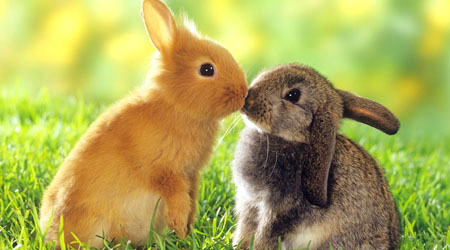Category: "A"
Готовить/приготовить, часть вторая
The verb готовоить/приготовить means ‘to prepare’ in the sense of preparing food, in other words ‘to cook.’ It conjugates like this.
| to prepare | ||
| Imperfective | Perfective | |
| Infinitive | готовить | приготовить |
| Past |
готовил готовила готовило готовили |
приготовил приготовила приготовило приготовили |
| Present |
готовлю готовишь готовит готовим готовите готовят |
No such thing as perfective present in Russian. |
| Future |
буду готовить будешь готовить будет готовить будем готовить будете готовить будут готовить |
приготовлю приготовишь приготовит приготовим приготовите приготовят |
| Imperative | готовь(те) | приготовь(те) |
First off, it can be used in the sense of ‘to know to cook’ in general.
| — Твой папа готовит? — Нет, папа вообще не готовит. Всегда готовит мама или я. |
“Does your dad cook?” “No, dad doesn't cook at all. It's always either me or mom.” |
Of course, you can also use it with the verb уметь ‘to know how’ in the same meaning, but then you'll have to use an infinitive:
| — Твой папа умеет готовить? — Нет, папа вообще не готовит. Всегда готовит мама или я. |
“Does your dad know how to cook?” “No, dad doesn't cook at all. It's always either me or mom.” |
You can also use the verb if you want to specify a specific dish or cuisine.
| На ужин я приготовила бефстроганов. | For dinner I made Beef Stroganoff. |
| Мой брат всегда готовит итальянские блюда. | My brother always makes Italian food. |
| — Все говорят, что вы отличный повар. Из тех блюд, которые вы когда-либо готовили, какое самое интересное? — В пустыне Калахари я приготовил ужин из пятнадцатикилограммового дикобраза. Они намного вкуснее обыкновенных американских дикобразов. |
“Everyone says you are an amazing chef. What's the most interesting thing you have ever cooked?” “In the Kalahari desert I made dinner from a 30-pound porcupine. They are a lot tastier than ordinary American porcupines.” |

By Drew Avery (African crested Porcupine {Hystrix cristata}) [CC-BY-2.0 (http://creativecommons.org/licenses/by/2.0)], via Wikimedia Commons
Зайка
When you get to Russia, you have to find yourself a Russian girlfriend or boyfriend. After a week or two, no doubt you start canoodling. Well, you can't kiss and cuddle and call your beloved by their first name. You have to call them the equivalent of sweetie or honey or darling or Nutella-lips. (Okay, I made that last one up.) In any case, one of the words you can use in that context is зайка ‘bunny’, which is the diminutive form of за́яц ‘rabbit.’ It declines like this:
| Sg | Pl | |
| Nom | за́йка | за́йки |
| Acc | за́йку | за́ек |
| Gen | за́йки | |
| Pre | за́йке | за́йках |
| Dat | за́йкам | |
| Ins | за́йкой | за́йками |
Actually, I was completely ignorant of this word until last December. A Russian friend of mine had sent me a picture of her boyfriend. I responded:
| Красавец он у тебя! | You've got a good looking guy there! |
And she responded:
| Он зайка! | He's a sweetie! |
Of course, guys can use this, too, when talking to their girlfriends:
| Зайка моя! Как я скучал по тебе! | Oh, baby, I missed you so much! |
In English affection terms are often associated with sweet-tasting foods: sweetie, honey, sugar, sugar plum, sweet cakes, sweet cheeks, honey bunch... Okay, some of those are old-fashioned, but you get the idea. Russians often use diminutive animal words to mean these things: рыбка ‘little fish,’ котик/киска ‘kitten.’ They have to be cute little animals; you'd never say «слоник ты мой» “your are my little elephant” or «верблюжонок ты мой» “my little camel.” And you definitely never want to call your girlfriend a сучка, which means... um... er... a little female dog, if you catch my meaning.
| Рыбка, дом выглядит прекрасно! | Sweetie, the house looks great! |
| Киска, ты прекрасно выглядишь! | Baby, you look amazing! |
| Котик, ты такой красивый! Все мои подруги завидуют мне. | Honey, you are so handsome! All my friends are jealous. |
Мочь/смочь
The verb most often translated ‘can, could, be able’ in Russian is мочь/смочь. Let's look over it's conjugation:
| Imperfective | Perfective | |
| Infinitive | мочь | смочь |
| Past | мог могла могло могли |
смог смогла смогло смогли |
| Present | могу можешь может можем можете могут |
No such thing as perfective present in Russian. |
| Future | No imperfective future for this particular verb. |
смогу сможешь сможет сможем сможете смогут |
Notice one quirk: it has no imperfective future form.
This verb is usually complemented by an infinitive phrase:
| Ты можешь прочитать эту статью до завтра? | Can you read this article by tomorrow? |
| Я не смогу прочитьать эту статью до завтра. | I won't be able to read this article by tomorrow. |
| Когда она училась в Институте, она смогла поразить людей своим удивительным голосом. (source) | When she was in college, she could amaze people with her astonishing voice. |
| — Я не могу избавиться от этих гнусных головных вшей. Я смазал свою голову речной грязью, как посоветовала бабушка, но никак не помогает. — Речная грязь? Что за чушь? Купи себе шампунь «Педилин», он очень эффективен. |
“I can't get rid of these nasty head lice. I smeared my head with river mud like Grandma told me, but it doesn't help.” “River mud? That's ridiculous. Buy Pedilin shampoo. It works great.” |
Рыло
The Russian word Рыло means ‘snout’. It declines like so:
| Sg | Pl | |
| Nom | рыло | рыла |
| Acc | рыло | рыла |
| Gen | рыла | рыл |
| Pre | рыле | рылах |
| Dat | рылу | рылам |
| Ins | рылом | рылами |
The word 'рыло' comes from the word 'рыть', which means 'to dig'. Since pigs always dig around in mud with their snout, it is called 'рыло'. However, the word is more often used when talking about ugly people's faces rather than pigs' snouts.
Here are a few sample sentences:
| Его лицо было похоже на рыло. | His face looked like a snout. |
| Свинья рыла землю рылом. | The pig was digging the ground with its snout. |
| У свиньи на рыле была грязь. | The pig had mud on its snout. |
| Кирка прокляла моряка, и его лицо превратилось в рыло свиньи. | Circe cursed the sailor, and his face turned into a pig's snout. |
Ништяк/Ништяки
The Russian slang word Ништяк means ‘Cool’, 'Good', 'Alright' or ‘Awesome’, depending on the context it is used in. However, the word 'ништяки' stands for something like 'goods', whether talking about munchies or leftover food, candy, etc. It declines like so:
| Sg | Pl | |
| Nom | ништяк | ништяки |
| Acc | ништяк | ништяки |
| Gen | ништяка | ништяков |
| Pre | ништяке | ништяках |
| Dat | ништяку | ништякам |
| Ins | ништяком | ништяками |
Here are a few sample sentences:
| Настроение у Сергея стало улучшаться, он начинал верить, что все будет ништяк. | Sergey's mood began to improve, he was starting to think that everything will be alright. |
| Эти семечки — ништяк! | These sunflower seeds are awesome!. |
| — Как дела? — Всё ништяк! |
“How are you?” “Everything is awesome!” |
| Ништяки остались? | Are there any left-overs? |
I found a great little internet meme that uses the word. It's probably confusing at first because a student might think that ваще is a misspelling of ваше, but that's not the case here. Here ваще is geek spelling for вообще ‘totally, completely,’ so in this picture the words mean “totally awesome!”


